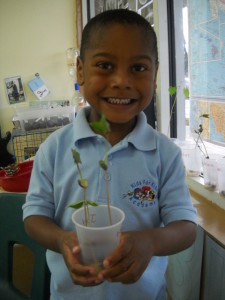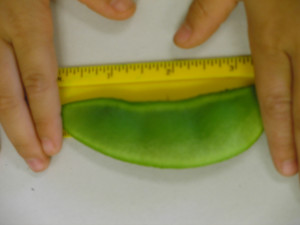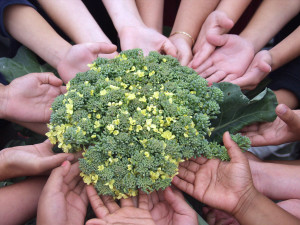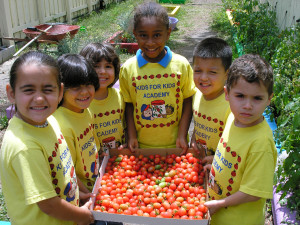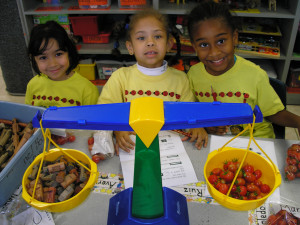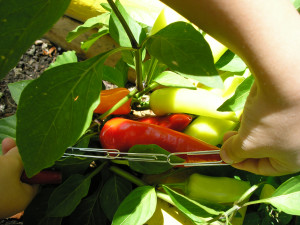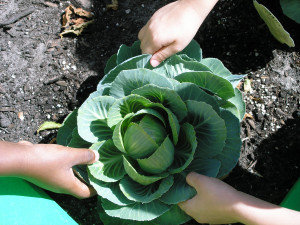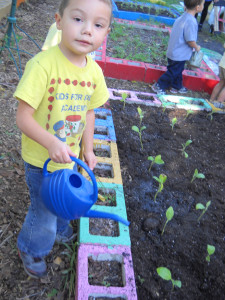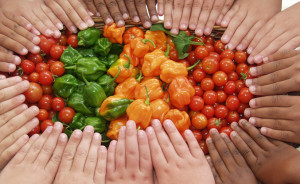Garden Studies For Young Children
Gardening is a great way to integrate math and science into the school day. Children can begin by making predictions on growing conditions or how long it will take for plants to grow. You can plant in cups and transfer the seedling plants to containers outside. We make beds out of concrete blocks that we put in a rectangle. Then dirt is thrown in the middle to make large beds and the children also plant in the holes of the blocks on the outside. Once plants have grown, children can perform field studies to measure and count. Below are examples of activities that can be done in a school garden. Marigolds can also be planted in the holes in the blocks surrounding the bed to act as a natural pesticide.
Here are some things the children can do in the garden
- Count the number of yellow flowers on your tomato plant. Those yellow flowers will fall off and tomatoes will appear.
- Count the number of green tomatoes on your plant.
- Count the number of red tomatoes on your plant.
- Use Popsicle sticks to measure the height of your plant.
- Count the number of green peppers in the garden.
- Count the number of red peppers in the garden.
- Count how many heads of cabbage are in the bed.
- Use paper clips to measure across the cabbage.
- Count the number of broccoli in each bed.
- Count the number of cauliflower in each bed.
- Measure the length of a bean pod.
- Measure the distance around the purple eggplant.
- Draw the vegetables in the garden.
- Use snapping cubes to measure the height of the cabbage plant.
Beans are in a cup.
Once grown, the bean length is measured.
Students observe and draw broccoli plants that have gone to seed.
“Hands On” Brocoli.
Tomatoes are picked and counted.
Students use blocks as a non-standard measure to balance the scale and weigh their tomatoes.
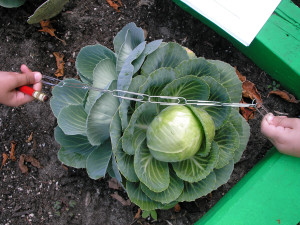 Paper clips are used as a non-standard measure to measure across the cabbage heads.
Paper clips are used as a non-standard measure to measure across the cabbage heads.
Paper clips are used as a non-standard measure to measure across the peppers.
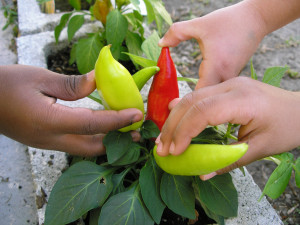 Red and green peppers are identified and counted separately.
Red and green peppers are identified and counted separately.
